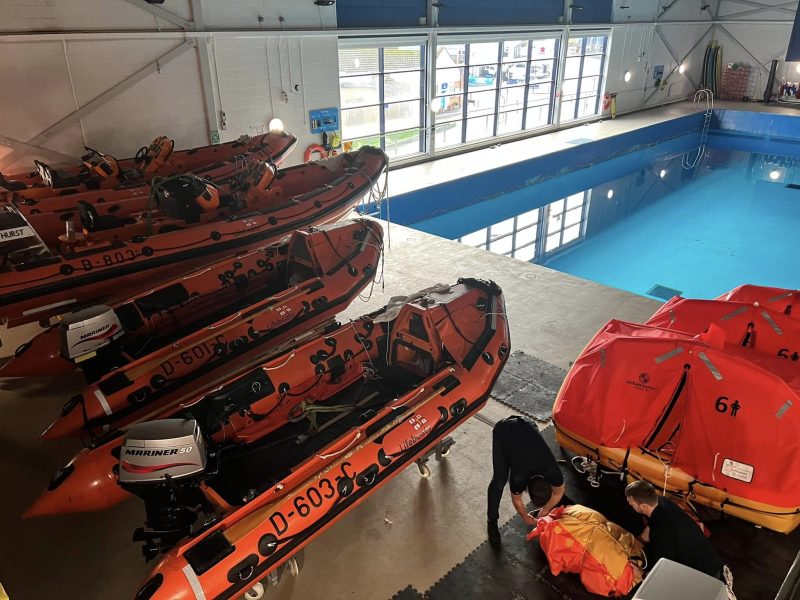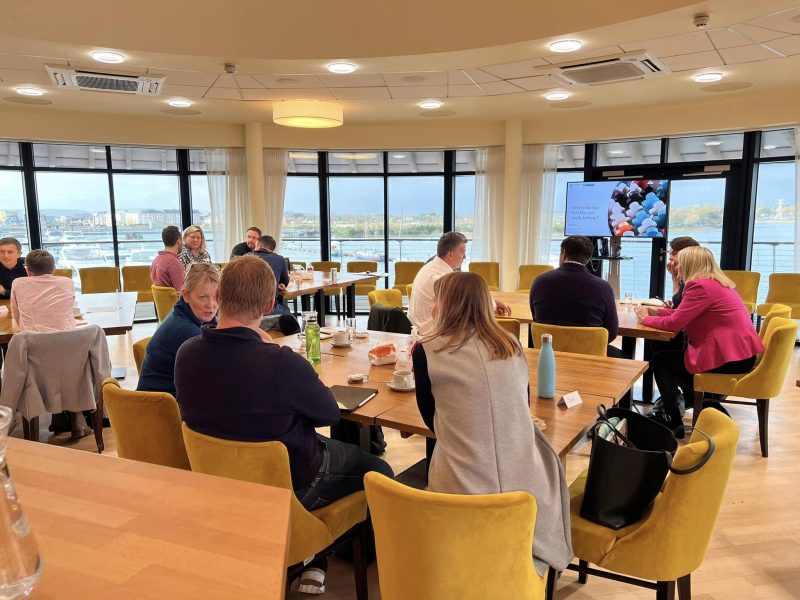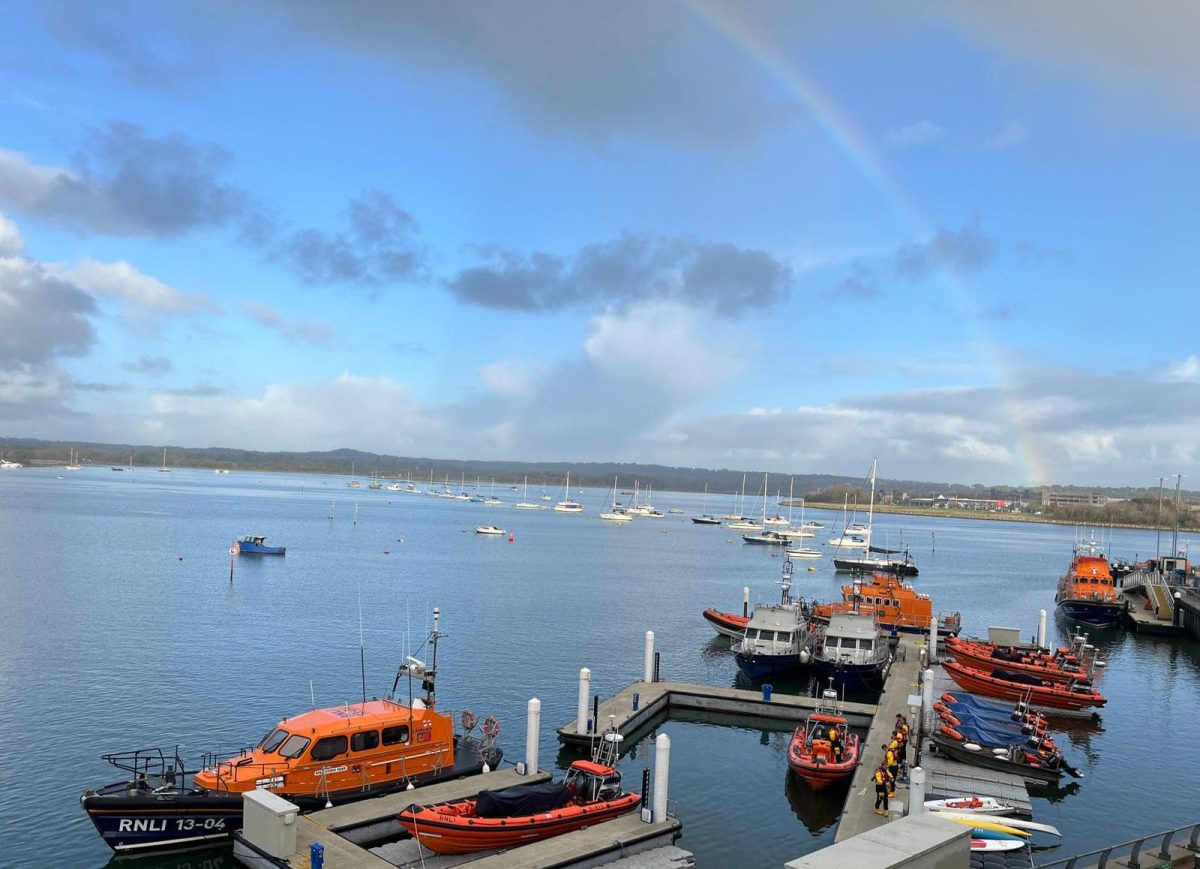Connect with us on LinkedIn for updates and the latest industry news
Inspirational, insightful, incredible. These words were top of mind when I sat down to reflect after our Performance Hub event last week, where the theme this time was Hardwiring Belonging. We were privileged to host our guests and speakers in the amazing environment of the RNLI’s Training College in Poole, Dorset.
Having worked at Leading Edge for nearly a year, it’s clear to see the incredible value of Performance Hub. It always helps to have an engaging topic and amazing environment – which we certainly experienced, thanks to the RNLI – but what has really stood out for me is how open-minded, curious and engaged the people are, always happy to explore, network and learn. That’s what they’re there for.
The events are a coming together of people who have such diverse backgrounds, with individuals coming from sport, education and business – and in a variety of roles. Although diverse in some ways, what’s common across the group is the keenness to engage in the topic and understand other people’s perspectives. And this always inspires such rich discussion.
Our speaker line-up comprised Alex Evans, Lifesaving Training Manager, RNLI; Clare Barrell, World Rugby’s Director of Investment & Member Services; David Court, Player Identification Lead, England & Wales Cricket Board (ECB); and Chris Musgrove, Owner Director, Performance Edge.
The RNLI: everyone is a lifesaver
Steve Hulbert and Dave Bloor from the RNLI were wonderful hosts. Steve set the scene of the RNLI, highlighting how 95% of the charity’s workforce are volunteers. They have a One-Crew philosophy, and, as both Steve and Alex Evans (in his session) elaborated, they embed this by creating the sense that “everyone is a lifesaver”: the crew, the families of the crew, the volunteers in the shops, the community around the lifeboat stations, those who donate to the RNLI.
This powerful higher purpose and sense of community creates a strong feeling of belonging, where everyone you meet is so proud and passionate about what the charity stands for. The feeling was infectious, and you started to understand why so many people willingly give up their time to be part of the RNLI’s vision and culture.
We were definitely in for a thought-provoking day, with some sea-themed experiences thrown in for good measure. I was happy to stand aside and let our guests experience ‘the lifeboat simulator’! And it was fascinating to tour the impressive training facilities, including the world-class Sea Survival Pool and the All-weather Lifeboat Centre, where we experienced the new lifeboats being built.

Belonging or not belonging – the feeling is equally powerful
The flipside of a sense of community and belonging is when you don’t feel you belong. This was the experience shared by Clare Barrell of a time when, even though she’d been invited along and had every right to be in the room, she didn’t feel she belonged. Whilst she hid in the toilets, it was an intentional act of someone more experienced reaching out that helped her that day. A moment that has since influenced her approach as a leader.
Clare’s openness sent a message to me about how, as leaders, we need to be purposeful about belonging, making sure we think about how we can get to know someone beyond their role, what belonging will look and feel like to them, and recognising this will be different for everyone in the team.
The power of storytelling
For Chris Musgrove, a powerful story that helps people feel part of something bigger can drive people’s sense of belonging. Drawing on his background in human intelligence with the military, Chris talked about how storytelling can tap into people’s emotions, beliefs and values, and help shape their behaviour. However, for people to get behind the story, it has to be compelling, relevant and accessible. If a powerful story sticks, it can inspire, motivate and empower. This was evident everywhere at the RNLI.
Strengthening belonging through shared rituals
David Court described how rituals and stories are also important for belonging in the cricketing world. In his role, he aims to help players feel part of a team as quickly as possible, because when people feel they belong, there’s a competitive advantage.
They have a ritual of handing down the ‘debutant pin’ from player to player. This anchoring in history makes the player feel part of something, and when it’s their turn to hand down the pin to the next debutant, they can share some wisdom through their own story and experience. This helps a new player to quickly embed themselves into a team, to feel that they belong and, as a result, to feel able to perform to their best.
Why belonging is so important
Whatever organisation we’re in, if we know we belong, we’ll feel more able to achieve. Belonging is a driver of that high performance. ‘Hardwiring Belonging’ was identified as one of five key drivers to high performance success in Leading Edge’s extensive research: High Performance Insights.
It feels great to belong. I’d encourage everyone to reflect on the times when you’ve felt like you’ve belonged and equally when you haven’t belonged and how this impacted your performance.
I’d like to thank everyone at the RNLI for being so generous with their time and knowledge last week and for making us feel so valued and part of what they do while we were in their company. An amazing and humbling day all round.





